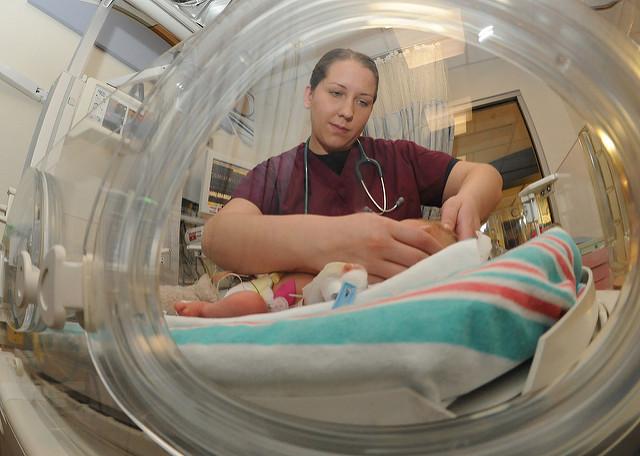Infection
Denmark reports Mycoplasma pneumonia epidemic
A new study based on British birth outcomes shows placental presence of Streptococcus agalactiae (known as group B Streptococcus, or GBS) is linked to double or triple the risk of neonatal intensive care unit (NICU) admission, roughly 10 times greater than previous estimates.
Group B strep is a common bacterium found in the genital tract of roughly 20% of pregnant women. Previous research has identified GBS in the placenta of around 5% of women before labor.
US women receiving prenatal care are routinely screened for the bacterium, and antibiotics are recommended for use in labor to avoid passing on the pathogen to the infant, but widespread screening is not as common in the United Kingdom.
Findings may change UK screening guidelines
In the study, published today in Nature Microbiology, researchers looked at the presence of GBS and admission to the NICU, using data from a previous study of 436 infants born at term, and a second cohort of 925 pregnancies.
The researchers found that 1 in 200 babies were admitted with sepsis associated with GBS, much higher than expected. Of 436 infants born at term, 7 out of 30 (23.3%) with placental GBS DNA and 34 of 406 (8.4%) without placental GBS DNA were admitted to the NICU (odds ratio, 3.3; 95% confidence interval, 1.3 to 7.8.)
Significantly more newborns are admitted to the neonatal unit as a result of GBS-related sepsis than was previously thought.
“In the UK, we’ve traditionally not screened mothers for GBS, but our findings—that significantly more newborns are admitted to the neonatal unit as a result of GBS-related sepsis than was previously thought—profoundly changes the risk/benefit balance of universal screening,” said author Francesca Gaccioli, MD, from the University of Cambridge, in a university press release on the study.
The authors of the study then analyzed umbilical cord serum in infants who suffered sepsis and positive placental GBS DNA, and found levels of four pro-inflammatory cytokines were signifianctly raised, suggesting the GBS caused a cytokine storm.
“We conclude that GBS causes about ten times the number of cases of neonatal morbidity than is currently recognized and that this morbidity is associated with bacterial invasion of the placenta and extreme activation of the fetal innate immune system before birth,” the authors concluded.

